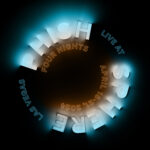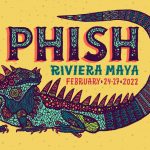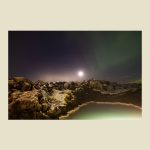Phish
www.phish.com
Bio
Trey Anastasio sums up Phish’s 16th studio album, Evolve – everything you hear and how it got there – like this: “The sound of rock ‘n’ roll,” the guitarist says, “is not isolation.”
It’s a philosophy of recording as old as rock itself and as immediate and thrilling as last night’s gig – everyone going for the right take together, in a single room and real time. It’s the way Elvis Presley cut his landmark singles for Sun Records and how Aretha Franklin captured the sacred and the sultry, at the piano backed by the Muscle Shoals rhythm section, in 1967 on “I Never Loved a Man (The Way I Loved You).” The Rolling Stones even had a name for it: Let It Bleed.
In that spirit, Phish caught the 12 new songs on Evolve in dynamic fast-off-the-floor live takes at the Barn, their Vermont studio, with producers Bryce Goggin and Vance Powell, enriching the tracks with overdubs and vocal harmonies. But that happened only after Anastasio, keyboard player Page McConnell, bassist Mike Gordon and drummer Jon Fishman put the material – mostly written by the guitarist across the last four years, alone and with co-writers Tom Marshall and Scott Herman – through months of study, experiment and crowd testing on the road. The result, four decades into Phish’s enduring bond as composers, improvisers and one of the most successful touring groups in rock: the Ultimate Studio Album by the Ultimate Live Band.
“This is where Phish sounds best – when the takes are fast, when we’re not thinking,” Anastasio declares. “We came in, set up and played – minimal separation, maximum two or three takes of each song. We had already opened the doors on tour, finding the songs everyone in the band felt good about and, with the audiences’ help, identifying the ones that had the magic.”
“What you hear is what we did on the road,” McConnell affirms. “Whatever we learned from playing them live – the right key, where to put the jam – we got in the studio. It was probably four days,” he says of the live tracking. “But I knew as they were going down: ‘Man, this is so good. It’s so great and easy.”
Evolve opens with the hearty stride of “Hey Stranger,” Phish’s expansive arrangement of a song from Anastasio’s solo, acoustic 2022 LP, Mercy – an emotional snapshot of pandemic-era exile that now doubles as an introduction to every new fan at a Phish show (“Hey, stranger/Come crash for a minute”). That record’s title ballad is now the tender climax of Evolve, developed live by Phish over 2023 and wreathed in strings “like a little prayer at the end,” Anastasio says. In between, “Oblivion” is a brawny portrait of the times as a ball of confusion, fortified with McConnell’s Hammond B-3 organ; “A Wave of Hope” swings the pendulum back to joy, its crunchy-Stones riffing and bright, vocal flight driven by Gordon and Fishman’s explosive gallop; and “Ether Edge” is deceptively complex solace, its serial art-pop changes lined in soothing, choral harmonies.
“A Wave of Hope” saw its first performance in June 2021, while “Oblivion” and “Ether Edge” premiered live in July 2023 with the exuberant “Pillow Jets” and the eerie menace of “Monsters” during a three-night stand at Denver’s Mission Ballroom by a unique lineup of the Trey Anastasio Band – the leader with Fishman on drums and TAB bassist Dezron Douglas. “We played 25 new songs,” says Anastasio. “This was a conscious choice. I wanted to see how the crowd reacted.” Phish then took that bag of tunes on their 2023 summer and fall tours “to see the songs that resonated” in that setting.
Evolve‘s title song – a jaunty urgency that first appeared on Lonely Trip, a 2021 solo project by Anastasio – was “one of those,” the guitarist notes. “Every context it was played in, it worked.” “Life Saving Gun” started out as a number on Anastasio and McConnell’s 2023 collaboration, January – a short outburst of ZZ Top via Kraftwerk – that “really took off” with Phish, McConnell says. “We played it live three times before we recorded it” for Evolve. “Every time it was a banger.”
McConnell recalls developing the vocal harmonies for “Ether Edge” in Phish’s backstage practice room at Dick’s Sporting Goods Park in Denver, then playing the song that night. “There was a gasp after the opening notes,” he says, “when people recognized it” from the earlier renditions at TAB’s Denver gigs. “It was amazing to have that response. We are in a unique situation. I don’t think any band has been where we are creatively, 40 years into our career.”
Evolve is effectively a return to what Anastasio calls “the young band advantage” of early Phish albums like 1989’s self-released Junta and 1990’s Lawn Boy “when you’d go out and play songs before you go into a studio. The complaint over the years has been ‘Why don’t Phish albums sound like Phish? There’s one Phish I see live and one Phish I hear on albums.'” The 2020 studio album, Sigma Oasis, was a decisive response – new tunes from the road recorded quick and live at the Barn in November, 2019 and issued in the early weeks of lockdown.
This time, there was an additional step after the stage research for Evolve, stemming from Anastasio’s solo acoustic tours. He cut an entire version of the album in that format, before the Barn sessions – on a stool with an acoustic guitar (as he did for Mercy). “Little things revealed themselves,” Anastasio explains. “This song needs an intro, or the B section should be four bars instead of eight. And you start looking at the lyrics: ‘What am I trying to say there?'”
“That’s as much a part of the process as the band thing,” McConnell says. “It’s what continues to rise through those steps. We can put on as much production as we want. But the song is there.”
Two tracks on Evolve are so new they have not been played live by Phish – yet. “Valdese” is named after “one of my favorite spots,” Anastasio says, a town in the Piedmont region of North Carolina. And Gordon came to the Barn with “Human Nature,” sunny funk with a catchy chorus. “We jumped on it and started doing cool things to it,” Anastasio says of the song, “like double-micing the guitar through this old amp.”
“The Barn tracks are the foundation of everything you hear” on Evolve, McConnell adds. But the songs, like those on every other Phish album, remain unfinished in the best way. “They will continue to improve – the vocals, the jams, the way we communicate with each other.” At one show in December 2023, at Madison Square Garden, “A Wave of Hope” went for 24 minutes. “We’ve been doing it so long, listening so hard,” McConnell says. “We’re like a giant art project that keeps rolling along. And it’s still fun.”
Contact
Management
Publicity
Agency
News

12/01/2023
PHISH TO PLAY SPHERE IN LAS VEGAS, APRIL 18 – APRIL 21, 2024
Today, Phish announced four performances at the world’s most cutting-edge venue, SPHERE, in Las Vegas, NV on April 18, 19, 20 and 21, 2024. As Phish fans well know, in their forty years of…
Read More
06/02/2021
Phish Announces Riviera Maya 2022 – February 24-27
Phish will return to Mexico for its fifth Phish: Riviera Maya, an all-inclusive concert vacation experience that will take place February 24-27, 2022. The event will see Phish performing for…
Read More
04/09/2021
Phish’s Page McConnell releases new solo album, MAYBE WE’RE THE VISITORS
Phish keyboardist Page McConnell announces the release of his new solo album, MAYBE WE’RE THE VISITORS, arriving digitally via Keyed Records this Friday, April 9. MAYBE WE’RE THE VISITORS was…
Read More